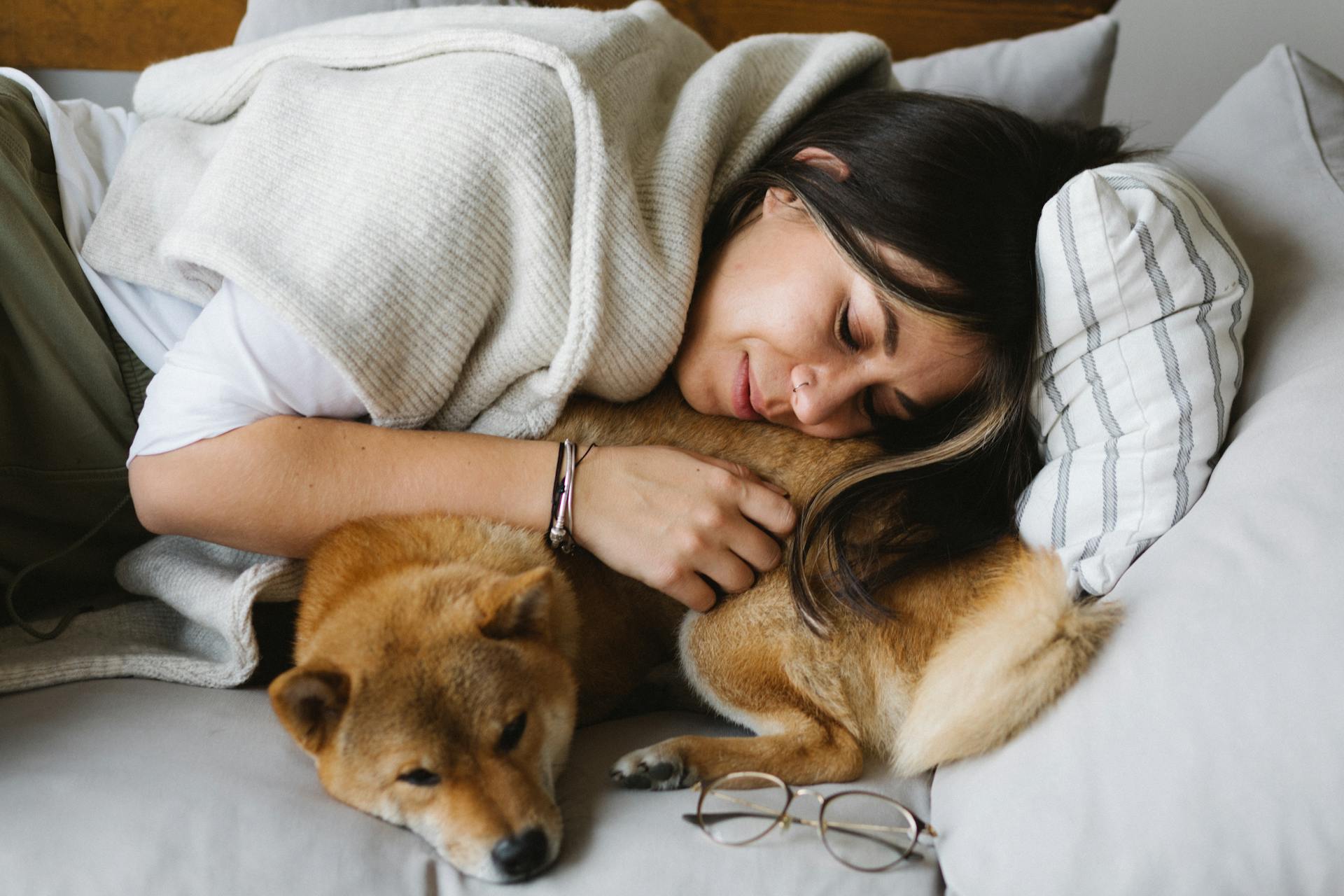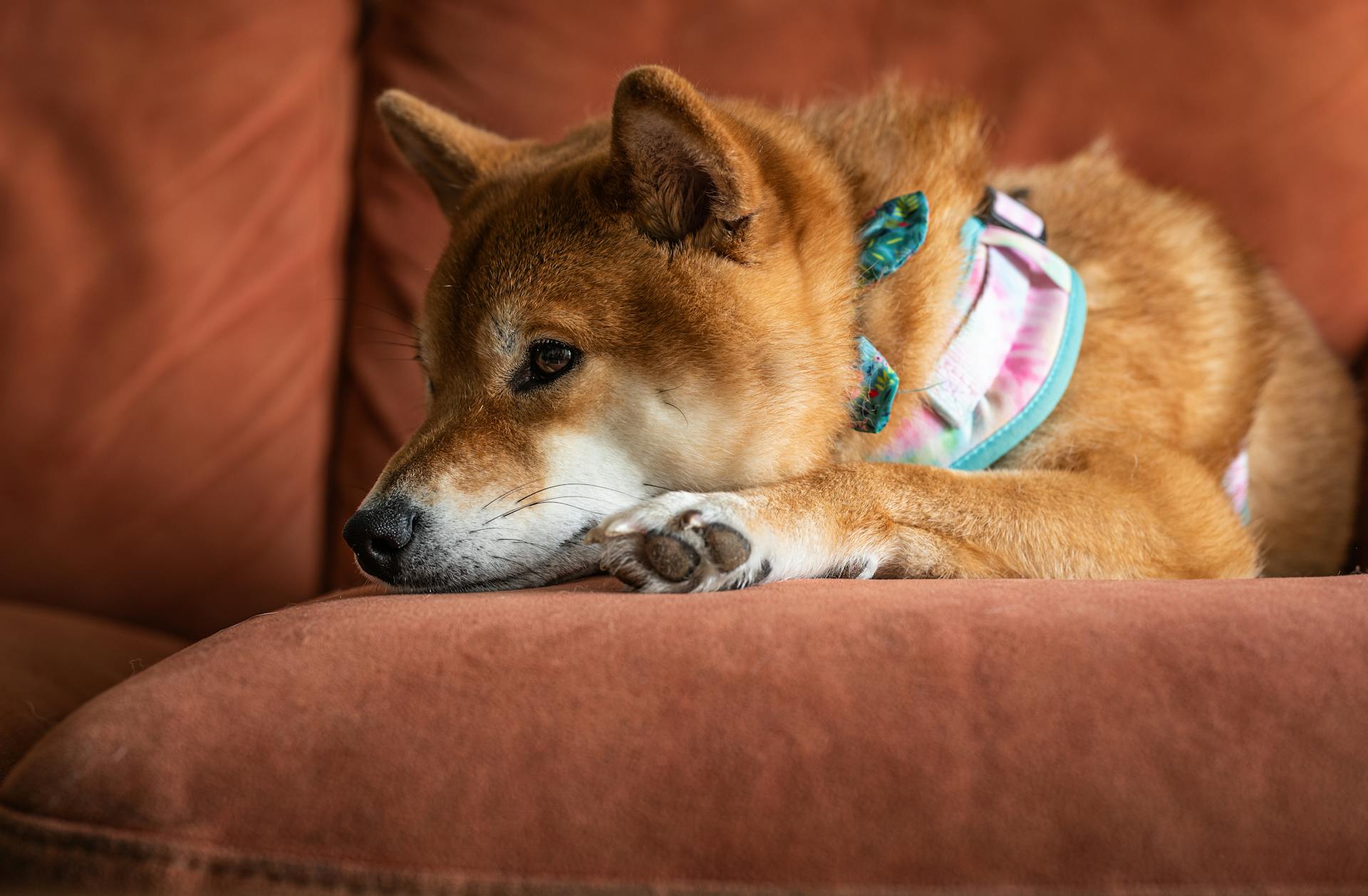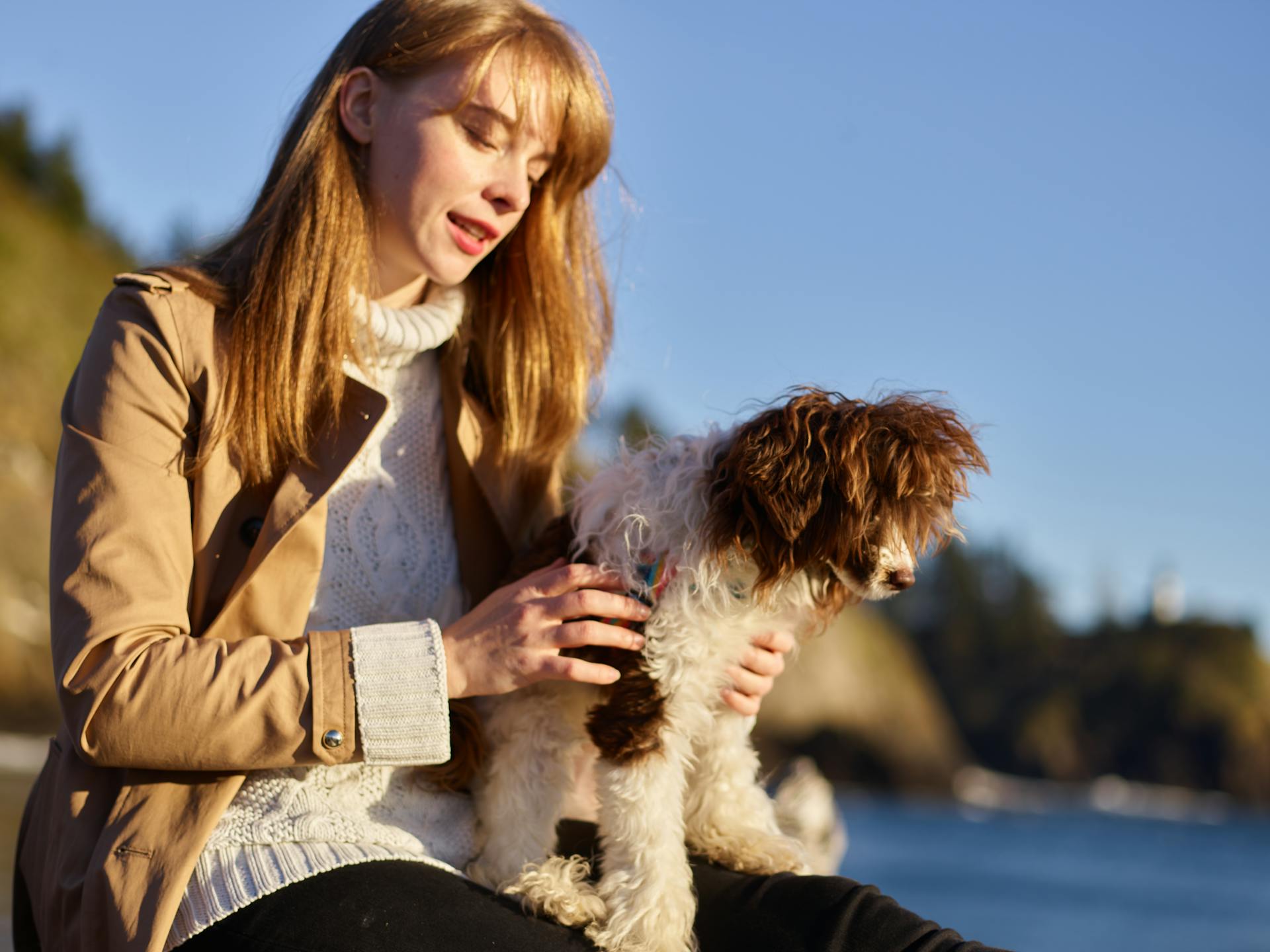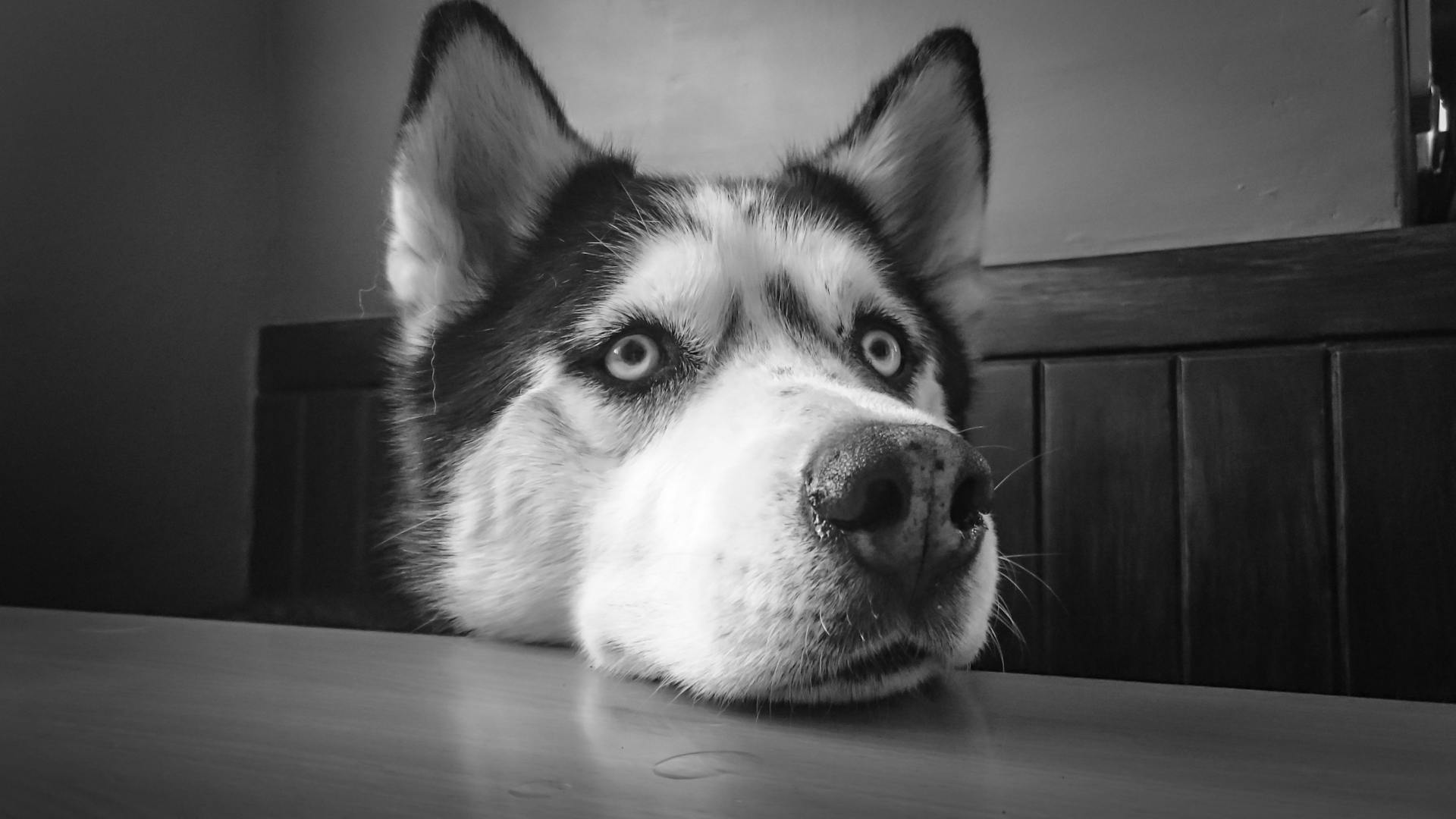
Shiba Inus can make wonderful family pets, but it's essential to understand their temperament and needs to ensure harmonious family living. This breed is known for being loyal and protective of their family, which can be a great asset in a household with kids.
However, Shiba Inus can be strong-willed and independent, which may lead to challenges in training and interacting with children. They require consistent, patient training and early socialization to help them develop good manners and boundaries.
With proper care and attention, Shiba Inus can thrive in families with kids, but it's crucial to consider their unique characteristics and needs. Shiba Inus are generally best suited for families with older children who can understand and respect their boundaries.
Related reading: Dog Training for Kids
Understanding Shiba Inus
Shiba Inus are loyal yet stubborn creatures, bred to hunt for small birds, which makes them active, intelligent, and loving dogs.
They can be wary of strangers and protective of their owners with other dogs, but Shiba Inus are good with kids. This is likely due to their pack animal nature, which causes them to treat your family like a part of theirs.
Socialization from a young age is key to helping Shiba Inus adjust to new environments and people. This is especially true since they can be protective of their owners.
Shiba Inus have a short, yet puffy coat that requires some grooming, and they're active seasonal shedders. They come in a variety of colors, including the reddish, sesame coloring that's popular among breeders.
Their pointed ears and curli-queue tail are distinctive features of the breed.
Temperament and Safety
Shiba Inus can be good with children, but their compatibility largely depends on individual temperament and socialization. They are often aloof and reserved, traits that require careful management when around kids.
Shiba Inus are small to medium-sized dogs, and interactions with young children should be supervised. Teaching children how to interact safely with dogs and understanding Shiba Inu’s body language is important to prevent misunderstandings or accidents.
Always supervise interactions between your child and the Shiba Inu, as this ensures the children and the dog feel comfortable and safe.
Temperament
Temperament is a crucial aspect to consider when thinking about getting a dog, especially one that's going to be part of a family with kids. Shiba Inus can be good with children, but their compatibility largely depends on individual temperament and socialization.
They can be aloof and reserved, traits that require careful management when around kids. Shiba Inus are often independent and strong-willed, which can make training a bit challenging.
However, with proper training and socialization, they can be affectionate and loyal family members. This makes them a great fit for families who are willing to invest time and effort into their dog's development.
Their reserved nature can sometimes be misunderstood as being aggressive, but with patience and understanding, you can build a strong bond with your Shiba Inu.
Related reading: Shiba Inu Family
Safety Considerations
Supervising interactions between Shiba Inus and young children is crucial to prevent misunderstandings or accidents.
Shiba Inus are small to medium-sized dogs, making them vulnerable to rough handling.

Teaching children how to interact safely with dogs is essential for their safety and the dog's well-being.
It's also important for children to understand Shiba Inu body language to recognize when the dog needs space.
Educating children on interacting safely and respectfully with the Shiba Inu is a vital part of responsible dog ownership.
Supervised interactions between children and the Shiba Inu ensure both the child and the dog feel comfortable and safe.
Always supervise interactions between your child and the Shiba Inu to prevent any potential harm.
Teaching your child to respect the dog's space and interact gently is crucial for a harmonious household.
Ensuring the Shiba Inu is well-trained and accustomed to being around children is also essential for a safe and enjoyable experience.
Living with Shiba Inus
Living with Shiba Inus requires a deep understanding of their unique needs and personalities. Effective training and early socialization are critical for Shiba Inus, especially in households with children.
Shiba Inus can be stubborn, so consistency and patient training are necessary. This means setting clear boundaries and rewarding good behavior. Consistency is key to developing a well-adjusted Shiba Inu.
Teaching your child to respect boundaries is crucial when living with a Shiba Inu. This includes understanding an animal's body language and knowing when to give them space. Children need to learn to recognize when a dog is feeling overwhelmed or needs some time alone.
Key to Harmonious Living
Living with Shiba Inus requires patience, consistency, and understanding of their unique needs.
Effective training and early socialization are critical for Shiba Inus, especially in households with children.
They can be stubborn, so consistency and patient training are necessary to develop a well-adjusted Shiba Inu.
Teach your child to respect boundaries and understand an animal's body language to avoid creating tension between them and the Shiba.
Sometimes, it's entirely appropriate to pick up a puppy and carry them around, but other times it isn't.
For your interest: How to Train a Shiba Inu
Children need to learn to give a Shiba space when they're feeling overwhelmed or not in the mood for handling.
Shiba Inus enjoy being around their humans but usually at arm's length, so don't be surprised if they don't always want to be petted or handled.
With proper dog training, Shiba Inu pups can learn to be patient around kids, and children can be taught how to properly approach their new family member.
Size
Living with a Shiba Inu is a wonderful experience, and one of the reasons is their ideal size. They aren't small enough to be trampled by rowdy kids.
This good in-between size creates a functional home space without a lot of chaos and crying!
Energy Levels
Living with Shiba Inus requires a good understanding of their energy levels. They are a high-energy breed that needs regular exercise to stay happy and healthy.
Shiba Inus are built for activity, with a strong instinct to run and play. They will match your child's activity level with no problem, so be prepared for backyard chases and games of fetch.
If you're an active family, a Shiba Inu can be a great fit. They love to keep up with the kids and will happily join in on any outdoor adventure.
Shiba Inus and Children
Shiba Inus can be good with children, especially if they are socialized from a young age. However, due to their independent nature, they may not tolerate rough play.
Introducing a Shiba Inu to children should be done in a calm and controlled setting, allowing the dog to approach them at its own pace. Supervision is vital to ensure the dog's and children's safety and comfort.
Teaching children how to interact safely with a Shiba Inu is crucial. Educate them on recognizing the dog's body language and giving it space when needed. Supervised interactions ensure the children and the dog feel comfortable and safe.
Signs that a Shiba Inu is comfortable around a child include a relaxed body posture, willingness to engage in gentle play, and showing interest or affection towards the child.
To ensure a positive relationship between a Shiba Inu and a child, teach the child to respect the dog's space and to interact gently. Always supervise interactions between the child and the Shiba Inu.
Shiba Inus can be protective of their family members, including children. They often form strong bonds with kids in their family but may not display overtly protective behavior like some larger breeds.
Here are some key things to consider when introducing a Shiba Inu to your family with children:
- Supervise all interactions between the dog and the child
- Teach the child to respect the dog's space and to interact gently
- Ensure the Shiba Inu is well-trained and accustomed to being around children
- Consider the age of your child, as Shiba Inus can be territorial and may not be patient with young children
By following these guidelines and being mindful of the Shiba Inu's unique temperament, you can create a harmonious and loving relationship between your Shiba Inu and your child.
Socialization and Training
Shiba Inus can be stubborn, so consistency and patience in training are essential. Positive reinforcement techniques work well with them.
To socialize your Shiba Inu, expose them to children in controlled and positive settings, ensuring all interactions are closely supervised. Regular exposure to various social situations involving children can help them become more comfortable and friendly. Basic obedience and training to manage their independent nature are also crucial in families with kids.
Hyper Tendencies
Shiba Inus can be quite hyper, and it's essential to keep up with their daily exercise needs to prevent aggressive play and hard-to-handle tendencies.
Some Shiba Inus will take their high energy to the max, making it crucial to spend time training them.
They require a lot of mental and physical stimulation, so it's a big commitment on your part.
How to Socialize
Socialization is key to helping your Shiba Inu become a well-adjusted and friendly companion, especially in families with kids. Consistency and patience in training are essential, as Shiba Inus can be stubborn.
Positive reinforcement techniques work well with Shiba Inus, so be sure to reward good behavior. This can help them become more child-friendly over time.
Exposing your Shiba Inu to children in controlled and positive settings, such as during supervised playdates, can help them become more comfortable and friendly.
A different take: Are Shiba Inus Friendly
Managing Resource Guarding
Resource guarding is a common issue that can arise in households with dogs, especially those with a "mine, mine, mine" mentality. Shibas, in particular, may be more prone to this behavior.
It's essential to recognize the signs of resource guarding early on, as it can lead to nipping or growling when children approach their possessions.
To address this issue, it's crucial to train both children and dogs to respect each other's space and belongings. One simple safety precaution is to teach children not to put their hands close to a dog's mouth when they have food or a toy.
Resource guarding can be a challenging behavior to break, but with patience and consistency, it's possible to eliminate it.
Sources
- https://iheartdogs.com/are-shiba-inus-good-with-kids/
- https://www.akc.org/expert-advice/lifestyle/fun-facts-shiba-inu/
- https://canna-pet.com/articles/shiba-inus-good-kids/
- https://www.momswhothink.com/are-shiba-inus-good-with-kids-what-parents-need-to-know/
- https://www.dogster.com/dog-breeds/are-shiba-inu-good-with-kids
Featured Images: pexels.com


